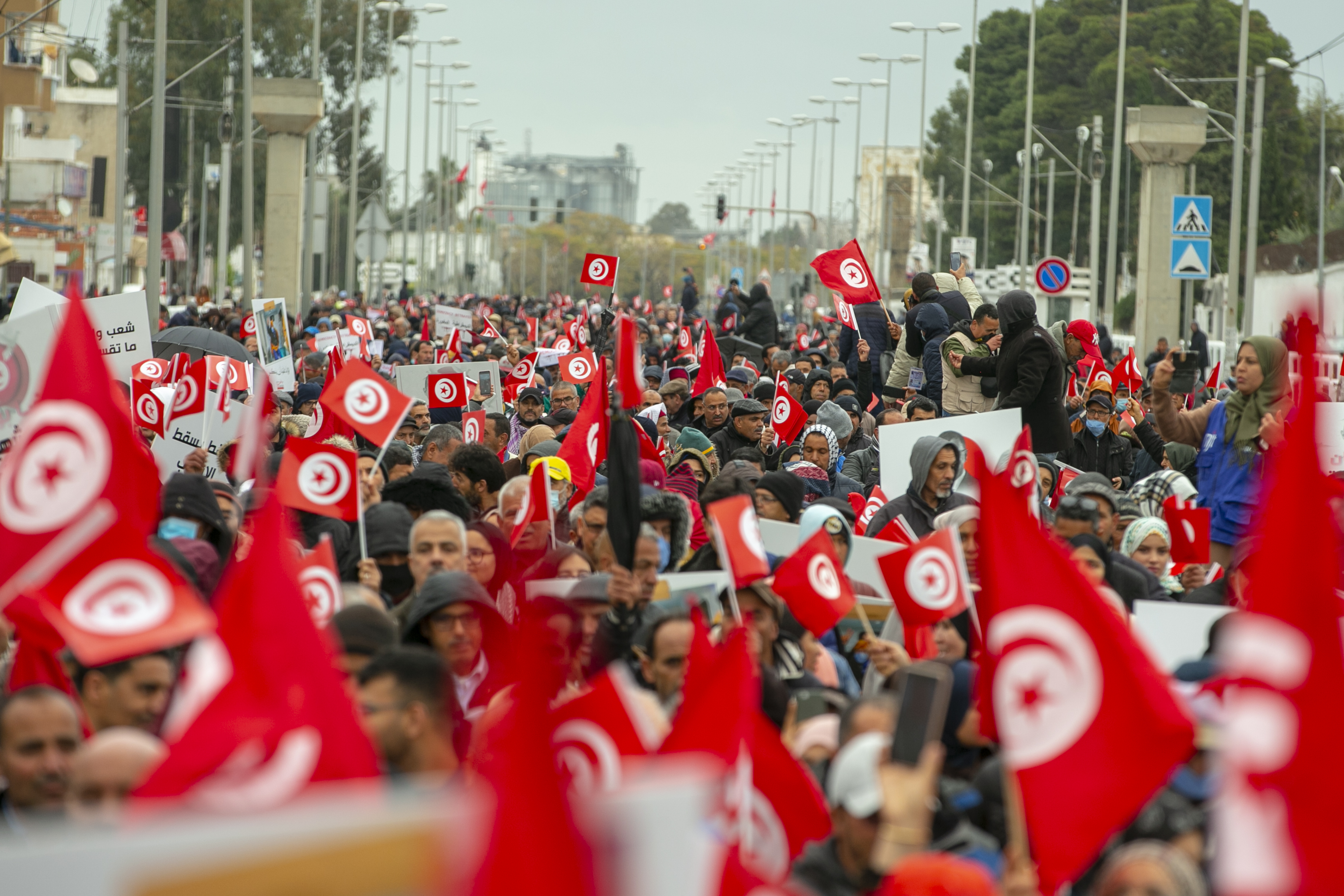In Tunisia, the development of local governance, enshrined in the 2014 constitution, was a major gain of the 2011 revolution. Political decentralization ensued with the election of 350 town and city councils in 2018. While this process spearheaded a new era of participatory governance at the municipal level, it was not followed by administrative and fiscal decentralization. With the adoption of a new constitution in July 2022, Tunisia is undergoing a new restructuring of the state’s governance architecture.
MEI is pleased to convene an expert panel to discuss how the recent referendum, which spurred massive state reorganization, will transform local governance, shape current practices, and transform future aspirations and developments.
Speakers
Chiraz Arbi
Program Manager, Al Bawsala; Consultant, U.N. Women, African Governance Architecture
Marouen Taleb
Co-Founder, North African Policy Initiative; Postdoctoral Fellow, Tunis Research Institute on Contemporary Maghreb
Hajer Saadouni
Civil Society Activist
Jean-Louis Romanet Perroux, moderator
Director and Co-Founder, North African Policy Initiative
Detailed Speaker Biographies
Chiraz Arbi
Chiraz Arbi is an international development professional and a political science researcher focusing on democratization, environmental rights, sustainable development, and local governance in the MENA region. As a Program Manager for Al Bawsala, she has been conducting oversight of the decentralization process in Tunisia. She also led a “Training of Trainers” with UN Women, Arab States on election campaign management strategies as well as with the African Governance Architecture.
Marouen Taleb
Marouen Taleb is a postdoctoral researcher at the Tunis Research Institute on Contemporary Maghreb. Taleb leads a research project on youth, local governance, and migration, funded by the French Development Agency. In 2019, he co-founded the North African Policy Initiative, an independant, non-profit, and non-partisan NGO. He also works as an expert consultant for strategic urban planning programs in African and Arab countries.
Hajer Saadouni
Hajer Saadouni has been a civil society activist since 2010. She has been active with many associations in Tunisian cities, such as Sbeitla and Kasserine. She participated in more than 100 training courses in a variety of fields, and worked as a project coordinator for a number of international organizations.
Jean-Louis Romanet Perroux
Jean-Louis Romanet Perroux is the director of the North African Policy Initiative and a researcher and advisor on international cooperation and development. Perroux has over 20 years of hands-on experience in program design and implementation, in training and coaching students and activists, and in conducting action-oriented research and strategic evaluations in the fields of civil society, youth and women empowerment, local governance, corruption, human trafficking and smuggling, migration, and violent extremism. He has worked in Africa with more than 30 national and international organizations.
Photo by Yassine Gaidi/Anadolu Agency via Getty Images












